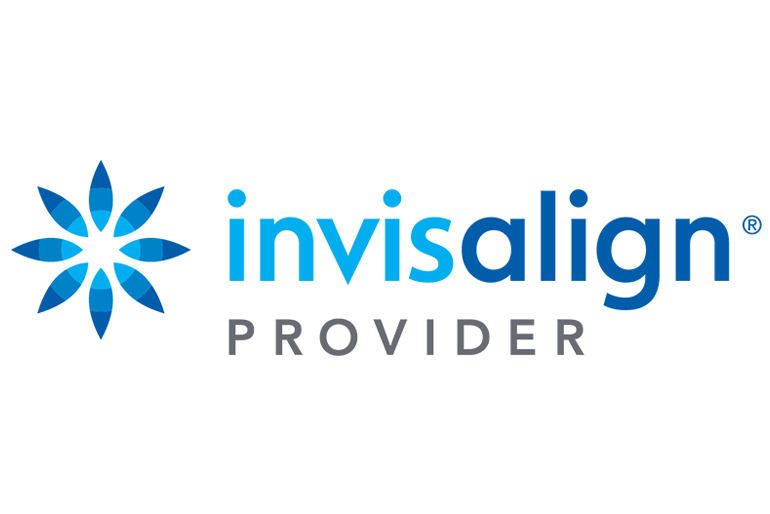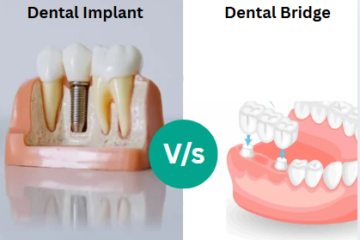
Have you ever wondered why some people seem to have naturally healthy teeth and gums while others struggle with constant dental issues despite regular brushing? The answer might surprise you – it’s not just about your oral hygiene routine. What you eat plays a crucial role in determining the health of your teeth and gums.
Your mouth is the gateway to your body, and oral nutrition forms the foundation of dental wellness. Every bite you take either nourishes your teeth and gums or contributes to their deterioration. Understanding this connection can revolutionize how you approach oral health and help you make informed dietary choices that benefit your smile for years to come.
Let’s explore the fascinating world of oral nutrition and discover how the right foods can become your most powerful allies in maintaining optimal dental health.
Understanding Oral Nutrition: The Foundation of Dental Health
Oral nutrition refers to the relationship between the foods and beverages you consume and their direct impact on your oral health. Unlike general nutrition that affects your overall well-being, oral nutrition specifically focuses on how dietary choices influence your teeth, gums, and the oral environment.
Your mouth is home to millions of bacteria, both beneficial and harmful. The foods you eat directly feed these microorganisms, determining whether your oral ecosystem thrives or becomes imbalanced. When you choose nutrient-dense foods, you’re essentially creating an environment where healthy bacteria flourish while harmful bacteria struggle to survive.
The Science Behind Oral Nutrition
Every time you eat, a complex biochemical process begins in your mouth. Saliva production increases, pH levels fluctuate, and bacteria metabolize the nutrients available. This process can either strengthen your teeth and gums or create conditions that lead to decay and disease.
Key Processes Affected by Oral Nutrition:
- Remineralization: Essential minerals from food help rebuild tooth enamel
- Saliva Production: Certain nutrients stimulate healthy saliva flow
- pH Balance: Foods can make your mouth more acidic or alkaline
- Bacterial Balance: Your diet determines which bacteria dominate your oral microbiome
- Inflammation Response: Anti-inflammatory foods reduce gum inflammation
Essential Nutrients for Optimal Oral Health
Understanding which nutrients your teeth and gums need is the first step toward better oral nutrition. Your mouth requires specific vitamins, minerals, and compounds to maintain its health and repair damage naturally.
Calcium: The Building Block of Strong Teeth
Calcium forms the primary structure of your teeth and jawbone. Without adequate calcium intake, your body begins to leach this mineral from your teeth, leading to weakening and increased susceptibility to decay.
Best Calcium Sources for Oral Health:
| Food Category | Calcium Content (per serving) | Additional Benefits |
|---|---|---|
| Dairy Products | 300-400mg | Protein, phosphorus |
| Leafy Greens | 150-250mg | Folate, antioxidants |
| Fortified Foods | 200-500mg | Vitamin D, B vitamins |
| Almonds & Seeds | 75-150mg | Healthy fats, magnesium |
| Canned Fish with Bones | 200-350mg | Omega-3 fatty acids |
Phosphorus: Calcium’s Essential Partner
Phosphorus works synergistically with calcium to strengthen tooth enamel and support jaw bone density. This mineral is crucial for the remineralization process that naturally repairs early stages of tooth decay.
Top Phosphorus-Rich Foods:
- Lean meats and poultry
- Fish and seafood
- Eggs and dairy products
- Nuts and seeds
- Whole grains
Vitamin D: The Absorption Enhancer
Without sufficient vitamin D, your body cannot effectively absorb calcium and phosphorus, regardless of how much you consume. This vitamin also supports immune function in your gums, helping fight off bacterial infections.
Vitamin C: Gum Health Champion
Vitamin C is essential for collagen production, which keeps your gums healthy and strong. Deficiency in this vitamin can lead to bleeding gums, gingivitis, and even tooth loss.
Vitamin C Powerhouses:
- Citrus fruits (consumed mindfully due to acidity)
- Bell peppers and broccoli
- Strawberries and kiwi
- Dark leafy greens
- Tomatoes and potatoes
Foods That Promote Excellent Oral Health
Choosing the right foods can significantly improve your oral health outcomes. These nutritional powerhouses provide the building blocks your mouth needs to stay healthy and strong.
Crunchy Fruits and Vegetables
Nature’s toothbrushes come in the form of crisp fruits and vegetables. Their fibrous texture naturally scrubs your teeth while eating, removing plaque and stimulating saliva production.
Top Choices for Natural Cleaning:
| Food | Primary Benefit | Secondary Benefits |
|---|---|---|
| Apples | Natural scrubbing action | Antioxidants, fiber |
| Carrots | Stimulate saliva flow | Beta-carotene, vitamin A |
| Celery | Remove food particles | Low calorie, hydrating |
| Raw Broccoli | Clean between teeth | Vitamin C, folate |
| Pears | Neutralize acid | Natural sweetness, fiber |
Protein-Rich Foods
Protein provides the amino acids necessary for tissue repair and immune function in your gums. Quality protein sources also contain phosphorus, which strengthens tooth enamel.
Excellent Protein Choices:
- Wild-caught fish rich in omega-3 fatty acids
- Grass-fed lean meats
- Free-range eggs
- Legumes and beans
- Greek yogurt and kefir
Healthy Fats for Inflammation Control
Omega-3 fatty acids possess powerful anti-inflammatory properties that benefit gum health. These healthy fats help reduce inflammation throughout your body, including your gums and supporting tissues.
Anti-Inflammatory Fat Sources:
- Fatty fish (salmon, mackerel, sardines)
- Walnuts and flaxseeds
- Avocados and olive oil
- Chia seeds and hemp hearts
The Dark Side: Foods That Harm Your Oral Health
Understanding which foods to limit or avoid is equally important for maintaining optimal oral nutrition. Some foods create perfect conditions for harmful bacteria to thrive, leading to tooth decay and gum disease.
Sugar: The Primary Culprit
Sugar feeds harmful bacteria in your mouth, producing acid that erodes tooth enamel. The frequency of sugar consumption matters more than the total amount – constant snacking on sugary foods maintains an acidic environment that promotes decay.
Hidden Sugar Sources to Watch:
| Category | Common Examples | Sugar Content |
|---|---|---|
| Beverages | Sodas, energy drinks, fruit juices | 25-40g per serving |
| Processed Foods | Crackers, cereals, sauces | 5-15g per serving |
| “Healthy” Snacks | Granola bars, dried fruits | 15-25g per serving |
| Condiments | Ketchup, salad dressings | 3-8g per serving |
Acidic Foods and Beverages
While some acidic foods offer nutritional benefits, frequent consumption can erode tooth enamel over time. The key is understanding how to consume these foods safely.
High-Acid Foods to Consume Mindfully:
- Citrus fruits and juices
- Tomatoes and tomato-based products
- Wine and coffee
- Carbonated beverages
- Pickled foods
Sticky and Chewy Foods
Foods that cling to your teeth provide prolonged exposure to sugars and acids, increasing the risk of decay. These foods are particularly problematic because they’re difficult to remove through normal saliva flow.
Timing Matters: When You Eat Affects Your Oral Health
The timing of your meals and snacks significantly impacts your oral health. Understanding the oral environment’s natural rhythms can help you make better choices about when to eat certain foods.
The Acid Attack Cycle
Every time you eat, bacteria in your mouth produce acids that lower the pH and create conditions for tooth decay. This acidic environment lasts approximately 20-30 minutes after eating. Frequent snacking means your mouth remains in this vulnerable state throughout the day.
Optimal Eating Patterns for Oral Health:
| Eating Pattern | Oral Health Impact | Recommendations |
|---|---|---|
| Three Main Meals | Allows natural pH recovery | Ideal for oral health |
| Frequent Snacking | Maintains acidic environment | Limit to 1-2 healthy snacks |
| Bedtime Eating | Reduced saliva during sleep | Avoid eating 2 hours before bed |
| Morning Timing | Fresh saliva production | Best time for acidic foods |
Strategic Snacking
When you do snack, choosing the right foods and timing can minimize damage to your teeth. Combining potentially harmful foods with protective ones can help neutralize their negative effects.
Smart Snacking Strategies:
- Pair acidic fruits with cheese or nuts
- Rinse with water after consuming sugary foods
- Choose whole foods over processed snacks
- End meals with alkaline foods like vegetables
The Role of Hydration in Oral Nutrition
Water plays a crucial role in oral nutrition, yet it’s often overlooked in discussions about dental health. Proper hydration supports every aspect of oral wellness, from saliva production to nutrient transport.
Saliva: Your Mouth’s Natural Defense System
Saliva is your mouth’s first line of defense against decay and disease. It neutralizes acids, washes away food particles, and delivers essential minerals to your teeth. Dehydration significantly impairs saliva production, leaving your mouth vulnerable to bacterial overgrowth.
Functions of Healthy Saliva:
- Neutralizes harmful acids produced by bacteria
- Delivers calcium and phosphorus for remineralization
- Washes away food particles and bacteria
- Contains antibacterial compounds that fight infection
- Begins the digestive process with enzymes
Choosing the Right Beverages
Not all beverages support oral health equally. Some drinks can enhance your oral nutrition plan, while others can undermine even the best dietary choices.
Oral Health Beverage Rankings:
| Beverage Type | Oral Health Rating | Key Considerations |
|---|---|---|
| Water | Excellent | Neutral pH, no calories, promotes saliva |
| Green Tea | Very Good | Antioxidants, fluoride, minimal processing |
| Milk | Good | Calcium, protein, but contains natural sugars |
| 100% Vegetable Juice | Fair | Nutrients but acidic and may contain added sugars |
| Fruit Juices | Poor | High sugar content, acidic, lacks fiber |
| Soda/Sports Drinks | Very Poor | High sugar, acidic, artificial additives |
Creating Your Personal Oral Nutrition Plan
Developing a sustainable oral nutrition plan requires understanding your individual needs, preferences, and lifestyle factors. A personalized approach ensures long-term success and optimal oral health outcomes.
Assessment and Goal Setting
Before making dietary changes, assess your current eating patterns and oral health status. Consider consulting with a qualified dentist in Nagpur who can evaluate your oral health and provide personalized recommendations based on your specific needs.
Key Areas to Evaluate:
- Current dietary patterns and food preferences
- Existing oral health conditions or concerns
- Lifestyle factors affecting food choices
- Budget and accessibility considerations
- Cultural and family food traditions
Building Your Ideal Daily Meal Plan
A well-structured meal plan incorporates all essential nutrients while minimizing foods that harm oral health. Focus on whole, minimally processed foods that provide maximum nutritional benefit.
Sample Daily Oral Nutrition Plan:
| Meal | Recommended Foods | Oral Health Benefits |
|---|---|---|
| Breakfast | Greek yogurt with berries and nuts | Protein, probiotics, antioxidants, calcium |
| Mid-Morning | Apple slices with almond butter | Natural cleaning action, healthy fats |
| Lunch | Salad with salmon and avocado | Omega-3s, leafy greens, healthy fats |
| Afternoon | Cheese and vegetable sticks | Calcium, fiber, natural scrubbing |
| Dinner | Lean protein with steamed vegetables | Complete amino acids, vitamins, minerals |
| Evening | Herbal tea (if desired) | Hydration without sugars or acids |
Special Considerations for Different Life Stages
Oral nutrition needs vary throughout different life stages. Understanding these variations helps optimize dental health at every age.
Children and Adolescents
Growing teeth and developing eating habits make childhood a critical time for establishing good oral nutrition practices. Children need adequate calcium and phosphorus for proper tooth development, while also learning to make healthy food choices.
Key Focus Areas for Young People:
- Establishing regular meal patterns
- Limiting sugary snacks and beverages
- Encouraging water consumption
- Making healthy foods appealing and accessible
- Teaching the connection between food and oral health
Adults and Professionals
Busy adult lifestyles often lead to poor eating habits that compromise oral health. Stress, irregular schedules, and convenience foods can all negatively impact oral nutrition.
Adult Oral Nutrition Challenges:
- Frequent coffee and tea consumption
- Stress-related teeth grinding affecting nutrition absorption
- Irregular meal timing due to work demands
- Reliance on processed and convenience foods
- Reduced saliva production from medications
Seniors and Age-Related Changes
Aging brings unique oral nutrition challenges, including medication effects, reduced saliva production, and changes in taste and appetite. Maintaining good oral nutrition becomes increasingly important for overall health and quality of life.
The Connection Between Oral Nutrition and Systemic Health
Your oral health and overall health are intimately connected. Poor oral nutrition doesn’t just affect your teeth and gums – it can impact your entire body’s health and well-being.
Cardiovascular Health Links
Research consistently shows connections between gum disease and heart disease. The inflammation caused by poor oral health can contribute to cardiovascular problems, making oral nutrition an important factor in heart health.
Diabetes Management
People with diabetes face increased risk of gum disease, while gum disease can make blood sugar control more difficult. Proper oral nutrition supports both oral health and blood sugar stability.
Immune System Support
Your mouth is a major entry point for bacteria and other pathogens. Strong oral health, supported by proper nutrition, helps maintain your body’s first line of immune defense.
Working with Dental Professionals
While you can make significant improvements to your oral health through better nutrition, working with qualified dental professionals provides additional benefits and ensures comprehensive care.
Regular Professional Assessment
A comprehensive evaluation by an experienced dentist in Nagpur can identify nutritional deficiencies affecting your oral health and provide personalized recommendations. Professional assessment includes examining your teeth, gums, and oral tissues for signs of nutritional impact.
Personalized Treatment Plans
Dental professionals can create integrated treatment plans that combine professional care with nutritional guidance. This comprehensive approach addresses existing problems while preventing future issues through improved oral nutrition.
Ongoing Monitoring and Support
Regular dental visits allow for monitoring of your oral nutrition progress and adjustment of recommendations as needed. Professional support increases your chances of long-term success with dietary changes.




